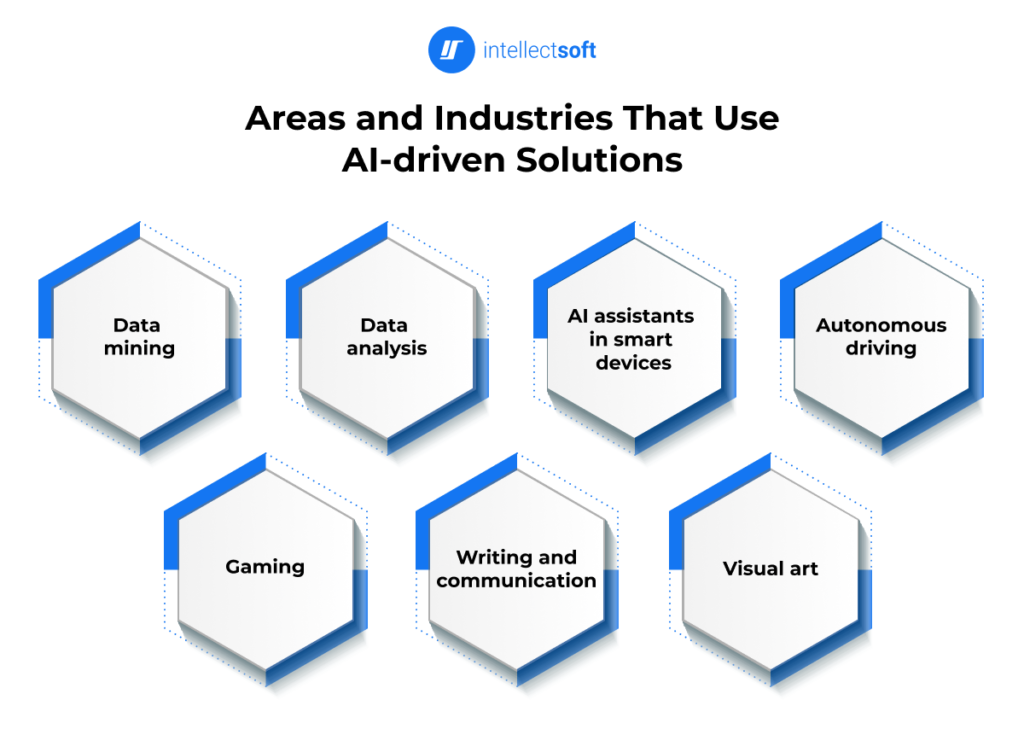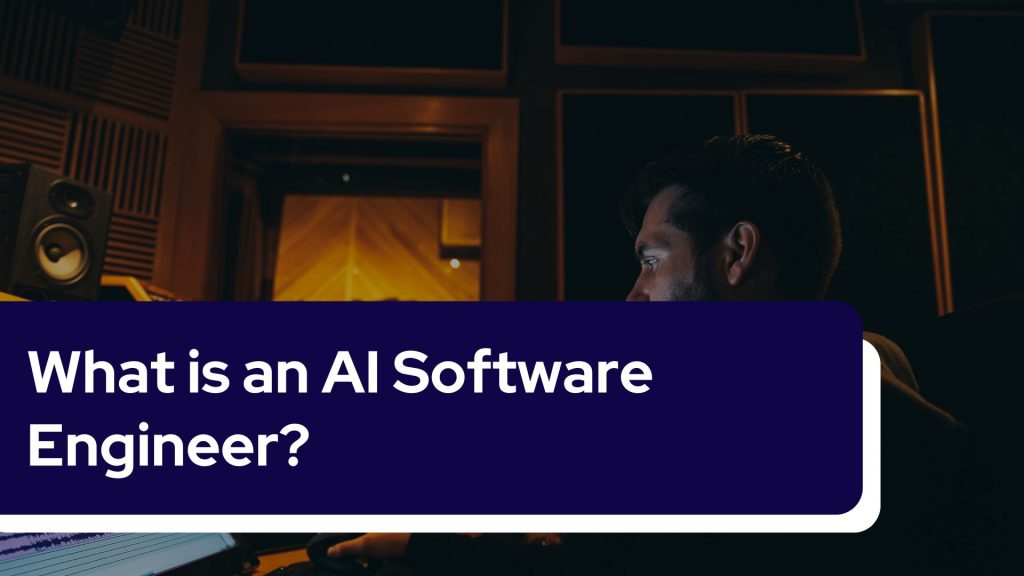In today’s rapidly evolving technological landscape, the field of artificial intelligence (AI) has emerged as a game-changer across industries. As businesses increasingly adopt AI solutions to streamline operations, enhance customer experiences, and drive innovation, the demand for skilled professionals in this domain has skyrocketed.
Among these professionals, AI software engineers play a crucial role in developing and implementing AI-powered systems. In this comprehensive blog post, we will delve into the world of AI software engineering, exploring the responsibilities, skills, and career prospects of these highly sought-after professionals.
Key Takeaways
- AI software engineers design, develop, and implement AI systems and applications.
- They possess a strong foundation in computer science, mathematics, and machine learning.
- AI software engineers work in various industries, including tech, healthcare, finance, and more.
- The demand for AI software engineers is growing rapidly, offering lucrative career opportunities.
- Pursuing a career in AI software engineering requires continuous learning and staying updated with the latest advancements.
- Melsoft Academy offers specialized bootcamps to help aspiring AI software engineers kickstart their careers.
What is an AI Software Engineer?

An AI software engineer is a specialized professional who focuses on designing, developing, and implementing artificial intelligence systems and applications. These individuals possess a unique blend of skills in computer science, mathematics, and machine learning, enabling them to create intelligent solutions that can learn, adapt, and solve complex problems.
AI software engineers work on a wide range of projects, from developing natural language processing systems and computer vision algorithms to creating predictive models and recommendation engines. They collaborate with cross-functional teams, including data scientists, software developers, and domain experts, to bring AI-powered solutions to life.
What Does an AI Software Engineer Do?
The role of an AI software engineer encompasses a diverse set of responsibilities, including:
- Designing AI Systems: AI software engineers design the architecture and framework of AI systems, considering factors such as scalability, performance, and maintainability.
- Developing AI Algorithms: They develop and implement machine learning algorithms, deep learning models, and other AI techniques to solve specific problems or achieve desired outcomes.
- Data Preprocessing and Feature Engineering: AI software engineers work with large datasets, cleaning and transforming the data to prepare it for model training. They also engineer features that can improve the performance of AI models.
- Training and Evaluating Models: They train AI models using appropriate algorithms and datasets, fine-tuning hyperparameters to optimize performance. AI software engineers also evaluate model performance using various metrics and techniques.
- Integrating AI into Applications: AI software engineers integrate AI models and algorithms into existing software systems or develop new applications that leverage AI capabilities.
- Testing and Debugging: They rigorously test AI systems to ensure they function correctly and meet performance requirements. AI software engineers also debug and troubleshoot issues that arise during development or deployment.
- Staying Updated with AI Advancements: The field of AI is constantly evolving, and AI software engineers must stay abreast of the latest research, techniques, and tools to remain competitive in their field.
What Skills are Required?
Becoming an AI software engineer requires a strong foundation in several key areas:
- Programming Skills: Proficiency in programming languages such as Python, R, or Java is essential for developing AI systems and implementing machine learning algorithms.
- Mathematics and Statistics: A solid understanding of linear algebra, calculus, probability, and statistics is crucial for working with machine learning models and optimizing their performance.
- Machine Learning and Deep Learning: Knowledge of machine learning algorithms, such as regression, classification, clustering, and neural networks, is fundamental for AI software engineers. Familiarity with deep learning frameworks like TensorFlow or PyTorch is also valuable.
- Data Manipulation and Analysis: AI software engineers must be adept at working with large datasets, using tools like Pandas or SQL to manipulate and analyze data effectively.
- Software Development: Proficiency in software development principles, version control systems like Git, and familiarity with cloud platforms like AWS or Azure is beneficial for deploying and scaling AI solutions.
- Problem-Solving and Critical Thinking: AI software engineers must possess strong problem-solving skills and the ability to think critically when approaching complex challenges.
- Communication and Collaboration: Effective communication and collaboration skills are essential for working with cross-functional teams and explaining technical concepts to non-technical stakeholders.
What Education is Required?
While there is no single path to becoming an AI software engineer, most professionals in this field have a strong educational background in computer science, mathematics, or a related field. Here are some common educational paths:
- Bachelor’s Degree: Many AI software engineers hold a bachelor’s degree in computer science, data science, mathematics, or a related discipline. A strong undergraduate education provides a solid foundation in programming, algorithms, and mathematics.
- Master’s Degree: Pursuing a master’s degree in artificial intelligence, machine learning, or a related field can provide specialized knowledge and skills that are highly valuable in the industry. Many AI software engineers hold advanced degrees to enhance their expertise.
- Ph.D.: Some AI software engineers choose to pursue a Ph.D. in AI or a related field, focusing on cutting-edge research and contributing to the advancement of the field. A Ph.D. can be beneficial for those interested in academic or research-oriented careers.
- Bootcamps and Online Courses: For individuals looking to transition into AI software engineering or upskill in this domain, bootcamps and online courses offered by institutions like Melsoft Academy can provide practical, hands-on training and help bridge the gap between theory and application.
What Industries Employ AI Software Engineers?

AI software engineers are in high demand across various industries, as businesses recognize the transformative potential of AI technologies. Some of the key industries that employ AI software engineers include:
- Technology: Tech giants like Google, Amazon, and Microsoft, as well as numerous startups, actively seek AI software engineers to develop innovative AI-powered products and services.
- Healthcare: AI software engineers in the healthcare industry work on developing systems for medical image analysis, drug discovery, personalized medicine, and patient monitoring.
- Finance: In the finance sector, AI software engineers contribute to developing algorithmic trading systems, fraud detection mechanisms, credit scoring models, and customer service chatbots.
- Automotive: The automotive industry employs AI software engineers to work on autonomous driving systems, advanced driver assistance systems (ADAS), and vehicle diagnostics.
- Retail and E-commerce: AI software engineers in retail and e-commerce focus on developing recommendation engines, inventory management systems, and personalized marketing solutions.
- Manufacturing: In manufacturing, AI software engineers work on predictive maintenance, quality control, and supply chain optimization using AI technologies.
- Gaming and Entertainment: The gaming and entertainment industry utilizes AI software engineers to create intelligent NPCs, adaptive game difficulty, and personalized content recommendations.
What is the Career Path of an AI Software Engineer?
The career path of an AI software engineer can vary depending on individual goals, experience, and the specific industry they work in. Here is a general outline of the typical career progression:
- Junior AI Software Engineer: Entry-level AI software engineers often start as junior engineers, working under the guidance of more experienced professionals. They focus on implementing AI algorithms, contributing to projects, and learning the ropes of the industry.
- AI Software Engineer: With a few years of experience, AI software engineers take on more complex projects, lead smaller teams, and contribute to the design and architecture of AI systems. They continue to develop their skills and stay updated with the latest advancements in the field.
- Senior AI Software Engineer: Senior AI software engineers have extensive experience and expertise in the field. They lead larger projects, mentor junior engineers, and make high-level technical decisions. They often specialize in specific areas of AI, such as natural language processing or computer vision.
- AI Architect: AI architects are responsible for designing and overseeing the implementation of large-scale AI systems. They work closely with stakeholders to understand business requirements and translate them into technical solutions. AI architects have a deep understanding of AI technologies and their applications across different domains.
- AI Research Scientist: Some AI software engineers choose to pursue a career in research, working as AI research scientists. They focus on advancing the field through innovative research, publishing papers, and collaborating with academic institutions and industry partners.
- AI Consultant: AI consultants work with businesses to assess their AI needs, develop strategies, and implement AI solutions. They leverage their expertise to guide organizations in adopting AI technologies and maximizing their benefits.
- AI Entrepreneur: Some AI software engineers choose to start their own AI-focused companies, developing innovative products or services and bringing them to market. This path requires a combination of technical skills, business acumen, and entrepreneurial spirit.
How to Become an AI Software Engineer
Becoming an AI software engineer requires a combination of education, practical experience, and continuous learning. Here are some steps to help you embark on this exciting career path:
- Gain a Strong Educational Foundation: Pursue a degree in computer science, mathematics, or a related field to build a solid foundation in programming, algorithms, and mathematics.
- Develop Programming Skills: Focus on learning programming languages commonly used in AI, such as Python or R. Practice writing code and solving programming challenges to enhance your skills.
- Study Machine Learning and AI Concepts: Learn the fundamentals of machine learning, including supervised and unsupervised learning, neural networks, and deep learning. Familiarize yourself with popular AI libraries and frameworks like TensorFlow or PyTorch.
- Work on AI Projects: Gain practical experience by working on AI projects, either through academic courses, personal projects, or internships. Building a portfolio of AI-related work can showcase your skills to potential employers.
- Stay Updated with the Latest Advancements: The field of AI is constantly evolving, so it’s crucial to stay updated with the latest research papers, attend conferences, and engage with the AI community through online forums and social media.
- Consider Advanced Education: Pursuing a master’s degree or Ph.D. in AI or a related field can provide specialized knowledge and open up advanced career opportunities.
- Join AI-Focused Bootcamps or Courses: Institutions like Melsoft Academy offer AI-focused bootcamps and courses that can help you acquire practical skills and accelerate your learning. These programs often provide hands-on experience and guidance from industry experts.
What are the Benefits?
Pursuing a career as an AI software engineer offers numerous benefits, including:
- High Demand and Job Security: The demand for AI software engineers is growing rapidly, ensuring a high level of job security and numerous career opportunities.
- Competitive Salaries: AI software engineers are among the highest-paid professionals in the tech industry, with salaries that reflect their specialized skills and expertise.
- Opportunity for Impact: AI software engineers have the opportunity to work on cutting-edge projects that can have a significant impact on businesses, industries, and society as a whole.
- Continuous Learning and Growth: The field of AI is constantly evolving, providing endless opportunities for learning, growth, and staying at the forefront of technology.
- Diverse Career Paths: AI software engineers can pursue various career paths, from working in industry to academia, research, or entrepreneurship, allowing for flexibility and personal fulfillment.
- Collaborative and Innovative Work Environment: AI software engineers often work in collaborative, innovative environments that foster creativity and problem-solving.
- Global Opportunities: The demand for AI talent is global, providing opportunities to work with international teams and organizations.
What Challenges Do AI Software Engineers Face?
While the role of an AI software engineer is rewarding, it also comes with its own set of challenges:
- Keeping Up with Rapid Advancements: The field of AI is evolving at a rapid pace, requiring AI software engineers to continuously learn and adapt to new techniques, tools, and research findings.
- Data Quality and Availability: AI systems heavily rely on data, and ensuring the quality, relevance, and availability of data can be a challenge for AI software engineers.
- Ethical Considerations: As AI technologies become more pervasive, AI software engineers must navigate ethical considerations, such as bias in algorithms, privacy concerns, and the potential impact on society.
- Interdisciplinary Collaboration: AI software engineers often need to collaborate with professionals from various domains, such as data scientists, domain experts, and business stakeholders. Effective communication and understanding of different perspectives can be challenging.
- Debugging and Troubleshooting: AI systems can be complex and difficult to debug, requiring AI software engineers to develop strong problem-solving and troubleshooting skills.
- Scalability and Performance: Ensuring that AI systems can scale and perform efficiently in real-world scenarios is an ongoing challenge for AI software engineers.
- Regulatory Compliance: As governments and organizations develop regulations around AI, AI software engineers must stay informed and ensure compliance with relevant laws and guidelines.
What is the Future of AI Software Engineering?
The future of AI software engineering is bright, with numerous opportunities and advancements on the horizon. Some key trends and developments to watch out for include:
- Increased Adoption of AI Across Industries: As more businesses recognize the value of AI, the demand for AI software engineers will continue to grow across various sectors, from healthcare and finance to manufacturing and retail.
- Advancements in Deep Learning and Neural Networks: Deep learning and neural networks are at the forefront of AI research, and ongoing advancements in these areas will lead to more powerful and sophisticated AI systems.
- Explainable AI and Ethical AI: As AI systems become more complex, there will be a growing emphasis on developing explainable AI models that can provide insights into their decision-making processes. Additionally, ethical AI practices will become increasingly important to ensure fairness, transparency, and accountability.
- AI and Edge Computing: The convergence of AI and edge computing will enable AI systems to process data and make decisions closer to the source, reducing latency and improving efficiency. AI software engineers will play a crucial role in developing AI solutions for edge devices.
- AI-Powered Automation: AI software engineers will continue to drive the development of AI-powered automation solutions, from robotic process automation to autonomous vehicles and drones.
- AI and Human Collaboration: The future of AI software engineering will involve creating systems that can effectively collaborate with humans, augmenting human capabilities and enhancing productivity.
- AI in Healthcare and Life Sciences: AI software engineers will contribute to groundbreaking advancements in healthcare, from drug discovery and personalized medicine to disease diagnosis and treatment planning.
FAQ Section
- What is the difference between an AI software engineer and a data scientist? An AI software engineer focuses on designing, developing, and implementing AI systems and applications, with a strong emphasis on programming and software development. In contrast, a data scientist primarily focuses on analyzing and interpreting data to extract insights and build predictive models.
- What programming languages are most important for AI software engineers? Python is the most widely used programming language for AI software engineering due to its extensive libraries and frameworks, such as TensorFlow and PyTorch. Other important languages include R, Java, and C++.
- How long does it take to become an AI software engineer? The time it takes to become an AI software engineer can vary depending on your educational background and experience. With a strong foundation in computer science and mathematics, it typically takes 4-6 years of education and training to become a competent AI software engineer.
- What are the most important skills for an AI software engineer? The most important skills for an AI software engineer include programming, mathematics and statistics, machine learning and deep learning, data manipulation and analysis, software development, problem-solving, and communication and collaboration.
- What is the average salary of an AI software engineer? The average salary of an AI software engineer can vary depending on factors such as location, experience, and industry. However, in the United States, the average salary for an AI software engineer ranges from $100,000 to $150,000 per year.
- How can I prepare for a career as an AI software engineer? To prepare for a career as an AI software engineer, focus on building a strong foundation in computer science, mathematics, and machine learning. Gain practical experience through projects and internships, stay updated with the latest advancements in AI, and consider pursuing advanced education or specialized training programs like those offered by Melsoft Academy.
- What are the most in-demand AI skills for software engineers? Some of the most in-demand AI skills for software engineers include deep learning, natural language processing, computer vision, reinforcement learning, and AIops (AI for IT operations).
Conclusion
The role of an AI software engineer is at the forefront of the technological revolution, shaping the future of industries and society. These professionals possess a unique combination of skills in programming, mathematics, and machine learning, enabling them to design, develop, and implement intelligent systems that can learn, adapt, and solve complex problems.
As the demand for AI software engineers continues to grow across various sectors, pursuing a career in this field offers numerous opportunities for personal and professional growth. However, becoming an AI software engineer requires dedication, continuous learning, and a passion for staying at the cutting edge of technology.
If you’re ready to embark on this exciting journey and transform your career, Melsoft Academy is here to help. Our specialized bootcamps and courses are designed to equip you with the practical skills and knowledge needed to succeed as an AI software engineer. Don’t miss out on the opportunity to be part of the AI revolution.
Take the first step towards your dream job!
Apply Now: https://melsoftacademy.com/apply-now


